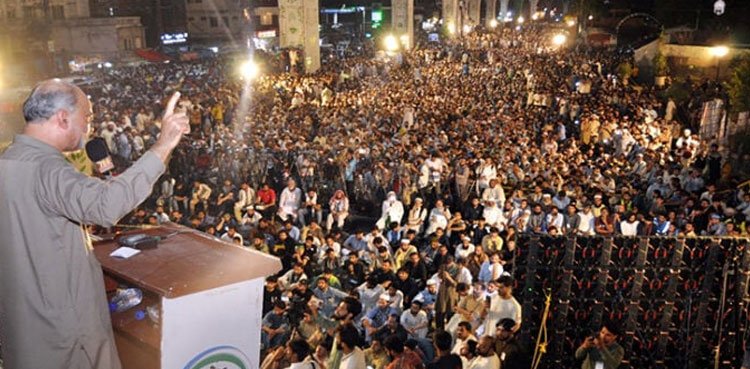Over Key demands
The ongoing talks between Jamaat-e-Islami (JI) and the government have yet to resolve the party’s demands, leading to a continued sit-in.
The discussions highlight significant public concerns and aim to secure relief measures for the populace.
JI’s Demands:
- Abolition of the levy on Petroleum Development
- 20% reduction in prices of food commodities, electricity, and gas tariffs
- Renegotiation of agreements with IPPs, especially to end the clause on making payments in US dollars
- Reduction in taxes on agriculture and industrial sectors
- Ensuring incentives for the industrial sector, trade, and investment
- Withdrawal of increased taxes on the salaried class and imposition of taxes on the privileged class
- A 35% cut in non-development expenses
- Withdrawal of all taxes on stationery and other items used in education and training of children
On Tuesday, the third round of talks between Jamaat-e-Islami (JI) and the government ended without agreement, as the party held firm on its demands to end their sit-in.
The government’s delegation, including Interior Minister Mohsin Naqvi, Information Minister Atta Tarar, and Amir Muqam, met with the JI team led by Liaquat Baloch.
Information Minister Atta Tarar stated that the discussions with the JI committee were positive and that another meeting would take place on Wednesday.
Speaking to the media, JI leader Liaquat Baloch emphasized that they would not compromise on their demands, which aim to provide relief for the people. The JI sit-in, now in its 13th day, highlights public issues. Baloch demanded that the government reduce petrol and electricity prices and review agreements with Independent Power Producers (IPPs).
The fourth round of talks is expected to be held on Wednesday. The JI has presented 10 demands and seeks Prime Minister Shehbaz Sharif’s guarantee on the ongoing talks, insisting that any agreement must bear his signature.

